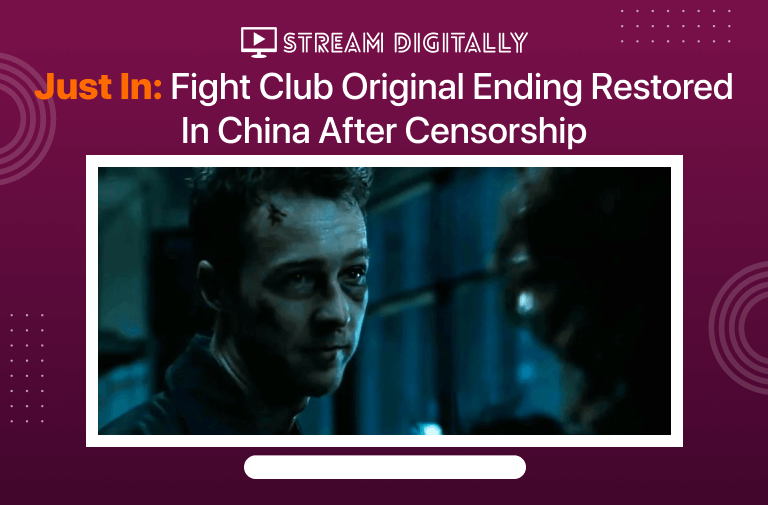The ending applied to the censored Chinese release of David Fincher’s Fight Club has now been reversed.
The censorship of Fight Club for a streaming release in China has been reversed, following a significant backlash. The film was directed by acclaimed psychological thriller film maker David Fincher and released in 1999. It was adapted from Chuck Palahniuk’s novel with a cast including Edward Norton, Brad Pitt, and Helena Bonham Carter, who met the needs of its cultural impact time after time over the years that have followed it since its release.
Tencent decided to censor Fight Club to make it more appealing, and the film’s ending was changed. As a result, there are two endings: one is the original theatrical cut, and another shows law enforcement stopping Project Mayhem’s bombs from going off by taking Tyler Durden away for psychiatric care. The change shows institutions with authority succeeding against anarchist activity while highlighting individual rebellions as failures.
As reported by ComicBook.com, Fight Club’s original ending has been restored, and the film will be available to stream almost in its entirety in China. The movie originally had 11 minutes cut from it, but now all 12 of those minutes have been reinstated- apparently due to online backlash about the decision to censor it in the first place. A lot of attention was paid on social media to how ridiculous censoring an act meant for adults seemed unfathomable before this new development today, which means that both censored and uncensored endings can be viewed side-by-side with different text here as well!
Today, many films released in production can fail to find distribution in China if their content is deemed inappropriate. In particular, films with anti-authority messaging will struggle to be released without editing or at all. The recent past includes Joker and Dark Knight movies which were not allowed into the country because of this concern for censorship.
The censored version of the film, which had been changed for release in China, was brought closer to the ending found in Palahniuk’s Fight Club novel. This reversal begs questions about censorship and what might happen in future years. It is unlikely that Chinese censorship standards are becoming more liberal with this one-off change following such unusual press coverage that the distribution has received.

